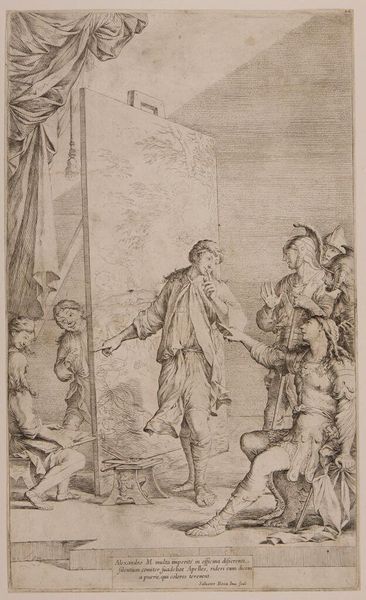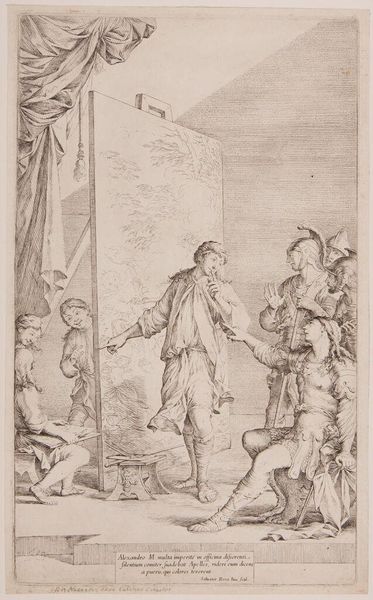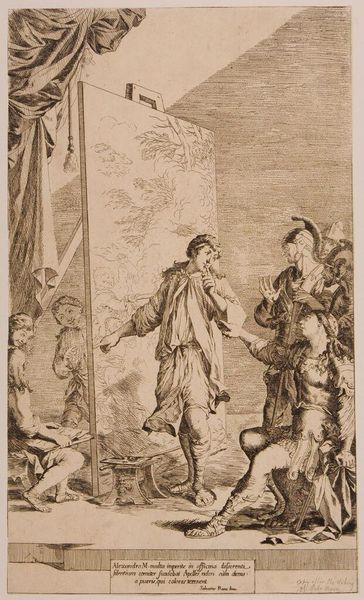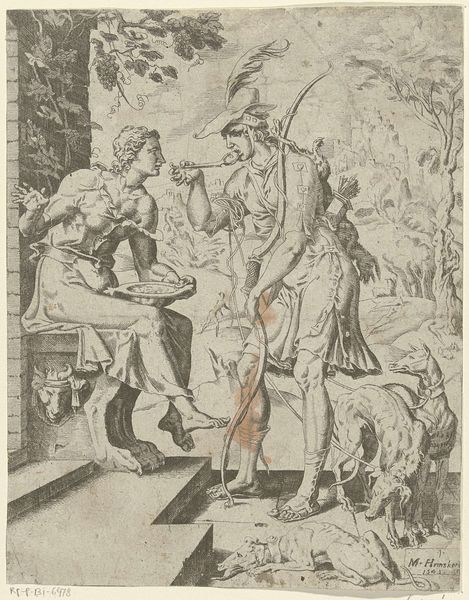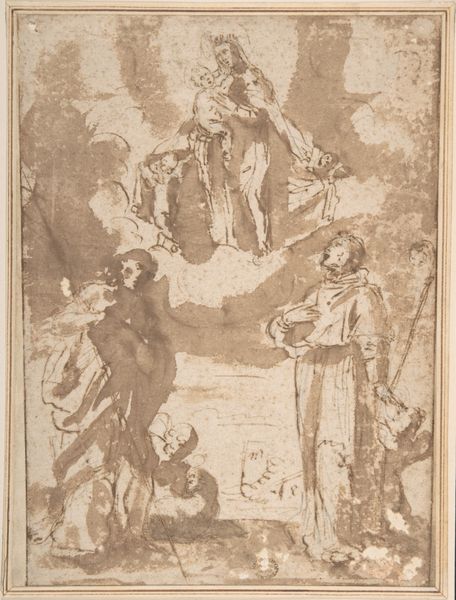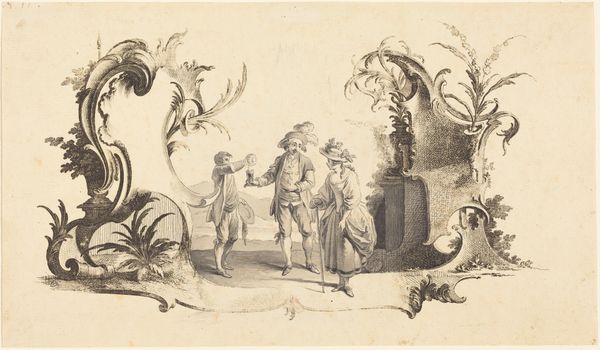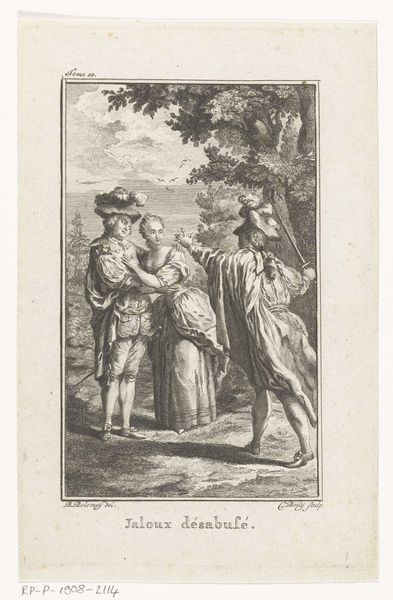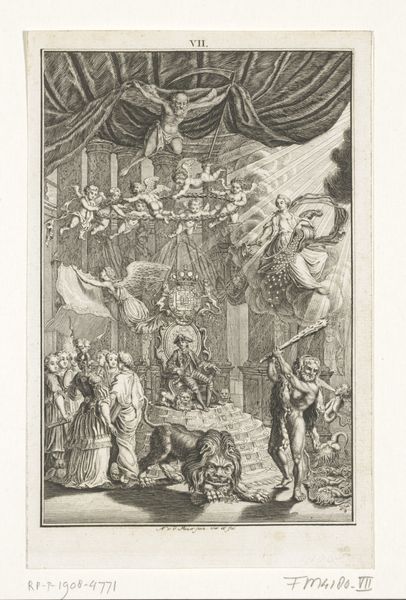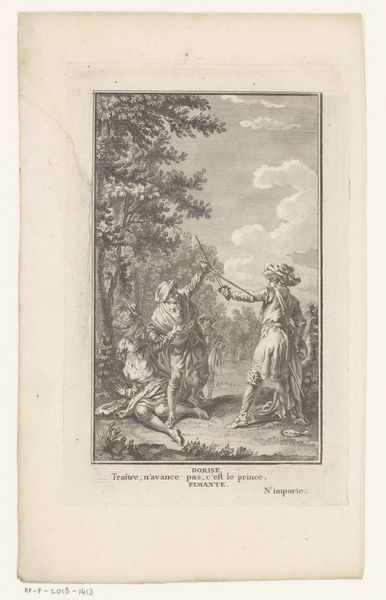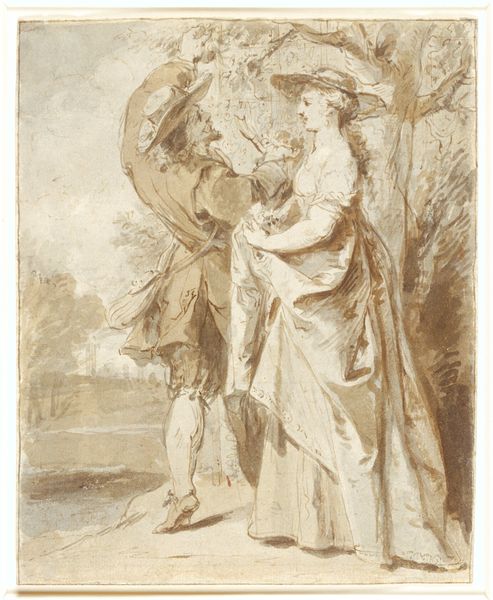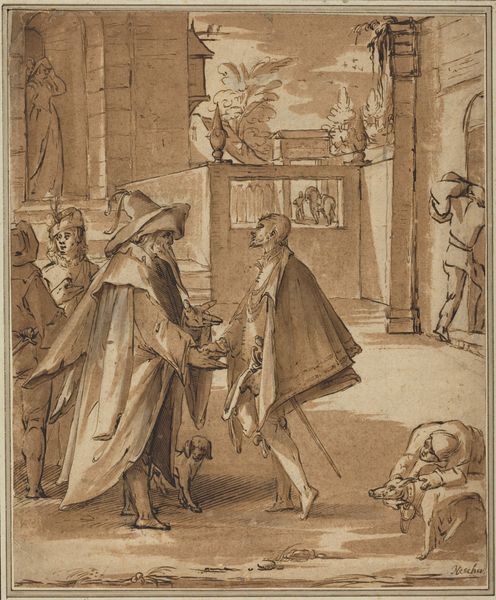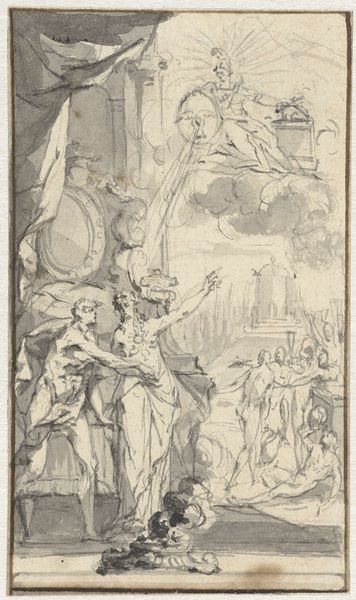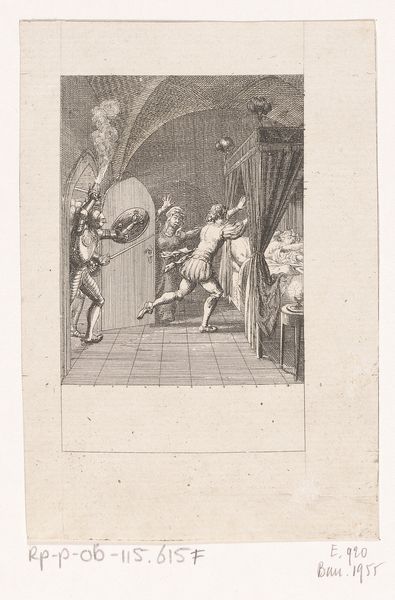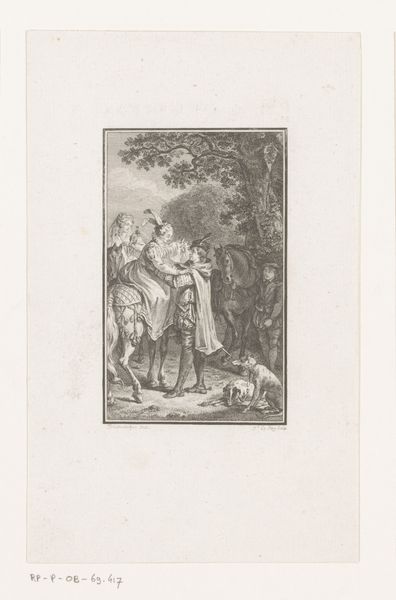
drawing, print, etching, paper
#
portrait
#
drawing
#
narrative-art
#
baroque
# print
#
etching
#
etching
#
paper
#
history-painting
#
academic-art
Dimensions: 455 × 273 mm (plate); 467 × 285 mm (sheet)
Copyright: Public Domain
Editor: This is Salvator Rosa's etching, "Alexander in the Studio of Apelles," made in 1662. It shows Alexander the Great visiting the famous painter, Apelles. The scene has a sort of informal, theatrical quality. What stands out to you about this piece? Curator: What I find most compelling is how this work stages the relationship between power, artistic genius, and, crucially, the act of image-making. Rosa is deliberately invoking the prestige of classical antiquity to comment on his own socio-political environment. Look at how Alexander, a ruler famed for military prowess, is relegated to a viewing role within the artist's domain. Editor: That's interesting. So, is Rosa using this historical scene to make a statement about the status of artists in his time? Curator: Precisely. The artist's studio is portrayed as a space where even emperors are subject to the artist's gaze. In the 17th century, artists increasingly sought recognition as intellectual figures, not mere craftspeople. Rosa’s choice to depict Alexander—known for promoting the arts—emphasizes this ambition. Consider, how does the setting—the artist’s studio, full of implied creative power—contribute to this message? Editor: I see what you mean. The setting really positions the artist, Apelles, as the central figure, even though Alexander is the subject of the story. It makes me wonder, was Rosa successful in elevating the status of artists during his time? Curator: Rosa's works were instrumental in shaping a romantic image of the artist as a rebellious genius, impacting generations to come. This image persists in popular culture today, revealing the lasting influence of these early assertions of artistic autonomy. Editor: It’s amazing how an image from so long ago can still speak to ideas about art and power. Thanks for sharing your perspective! Curator: My pleasure. It’s always fascinating to consider how art reflects and shapes its cultural moment.
Comments
No comments
Be the first to comment and join the conversation on the ultimate creative platform.
